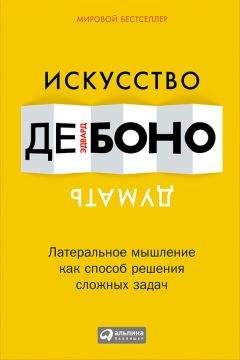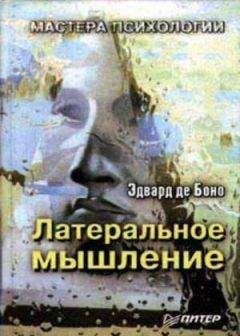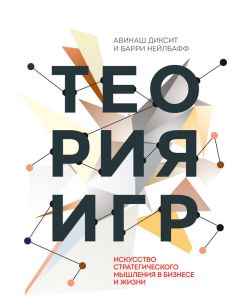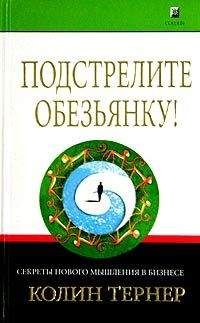Говард Гарднер - Мышление будущего. Пять видов интеллекта, ведущих к успеху в жизни
10
Donald Schon, The Reflective Practitioner (NewYork: Basic Books, 1983).
11
Arthur Rubinstein, My Many Years (New York: Knopf, 1980), 218–219, 258.
12
Michael Maccoby, personal communication, October 11 2006.
13
Severs’s comments from personal communication, August 29, 2006.
14
Gerald Holton, Thematic Origins of Scientific Thought (Cambridge, MA: Harvard University Press, 1988).
15
Clayton Christensen, The Innovator’s Dilemma (New York: Harper Business, 1997).
16
Jim Collins, Good to Great and the Social Sectors (Boulder, CO: Jim Collins, 2005).
17
Peter Galison, Einstein’s Clocks, Poincare’s Maps: Empires of Time (New York: Norton, 2004).
18
Bill Bryson, A Short History of Nearly Everything (New York: Broadway, 2003), 1.
19
Там же, с. 476.
20
Ken Wilber. A Brief History of Everything (Boston: Shambhala, 1996), 16.
21
Ken Wilber, The Essential Ken Wilber (Boston: Shambhala, 1998), 7.
22
Wilber, A Brief History of Everything, 42.
23
Wilber, The Essential Ken Wilber, 113.
24
C. P. Snow, The Search (London: Penguin, 1950), 243.
25
John Gardner (1912–2002) was an outstanding American public servant.We were not related.
26
Steven Johnson, «Tool for Thought,» New York Times Book Review, January 30, 2005, end piece.
27
Richard Light, Making the Most of College (Cambridge, MA: Harvard University Press, 2001).
28
Edward O. Wilson, Consilience (New York: Knopf, 1998).
29
Vartan Gregorian, «Colleges Must Reconstruct the Unity of Knowledge,» Chronicle of Higher Education, June 4, 2004, B-12.
30
Quoted in David Remnick, «The Wanderer,» The NewYorker, September 18, 2006, 65.
31
Edward de Bono, Lateral Thinking (New York: Harper, 1973).
32
Mihaly Csikszentmihalyi, Creativity (NewYork: Harper Collins, 1996).
33
John Maynard Keynes, The General Theory of Employment, Interest, and Money (1936; repr., New York: Prometheus, 1977).
34
Quoted in Howard Gardner, Artful Scribbles (NewYork: Basic Books, 1982) 8.
35
Howard Gardner, To Open Minds: Chinese Clues to the Dilemma of American Education (NewYork: Basic Books, 1989).
36
Teresa Amabile, How to Kill Creativity (Boston: Harvard Business School Press, 2000).
37
Bethany McLean and Peter Elkind, The Smartest Guys in the Room (New York: Viking, 2004).
38
Jeffrey Immelt, «Growth as a Process: The HBR Interview,» Harvard Business Review, June 2006.
39
Gary Taubes, Bad Science: The Short Life and Weird Times of Cold Fusion (New York: Random House, 1993), xviii.
40
Там же, с. 112.
41
Там же, с. 72–73.
42
Richard Florida, The Rise of the Creative Class (New York: Basic Books, 2003).
43
Bill Joy, Why the Future Doesn’t Need Us: How 21st Century Technologies Threaten to Make Humans an Endangered Species (New York: Random House Audio, 2006).
44
Michael Balter, «First Jewelry? Old Shell Beads Suggest Early Use of Symbols,» Science 23, no. 5781 (2006): 1731.
45
Имеется в виду Мюнхенский сговор – соглашение, подписанное в Мюнхене 30 сентября 1938 года главами крупнейших европейских государств. Соглашение касалось передачи Германии Чехословакией Судетской области. – Прим. ред.
46
W. H. Auden, «September 1, 1939.»
47
Margaret Talbot, «The Baby Lab: How Elizabeth Spelke Peers into the Infant Mind,» The NewYorker, September 4, 2006.
48
Vivian Paley, You Can’t Say You Can’t Play (Cambridge, MA: Harvard University Press, 1993).
49
Знаменитый судебный процесс 1954 года, положивший конец расовой дискриминации в американских школах; к данному прецеденту апеллировали позднейшие источники антидискриминационного законодательства. – Прим. ред.
50
Yarrow Dunham, A. S. Baron, and M. R. Banaji, «From American City to Japanese Village: A Cross-Cultural Investigation of Implicit Race Attitudes,» Child Development (forthcoming).
51
Sara Lawrence-Lightfoot, Respect (New York: Perseus Books, 1999).
52
James Atlas, Bellow: A Biography (New York: Modern Library, 2002), 574.
53
Robert Payne, The Life and Death of Mahatma Gandhi (1969; repr. New York: Dutton, 1995), 412.
54
Niall Ferguson, Empire (New York: Penguin, 2004), 335.
55
Amy Edmondson, R. Bohmer, and G. Pisano, «Speeding Up Team Learning,» Harvard Business Review, October 2001.
56
Such books include J. R. Huizenga, Cold Fusion: The Scientific Farce of the Century (NewYork: Oxford University Press, 1994); Eugene F. Mallove, Fire from Ice: Searching for the Truth Behind the Cold Fusion Furor (New York: John Wiley, 1991); Bart Simon, Undead Science (New Brunswick, NJ: Rutgers University Press, 2002); and Taubes, Bad Science.
57
John Seely Brown, «Towards Respectful Organization» in Organizations as Knowledge Systems, ed. Haridimos Tsoukas and Nikolaos Myolonopoulus (Houndmills, UK: Palgrave Macmillan, 2003).
58
Rodney Kramer, «The Great Intimidators,» Harvard Business Review, February 2006.
59
Samuel Oliner, Altruistic Personality (New York: Touchstone, 1992).
60
Daniel Barenboim and Edward W. Said, Parallels and Paradoxes: Explorations in Music and Society (New York: Pantheon, 2002), 6, 10, 11.
61
Alan Riding, «Harmony Across the Divide,» New York Times, August 20, 2006, Arts and Leisure, 1.
62
Там же.
63
See www.silkroadproject.org/press/faq.html.
64
See Rudy Govier and WilhelmVerwoerd, «Trust and the Problem of National Reconciliation,» Philosophy of the Social Sciences 32, no. 3 (2002): 187–205; Priscilla B. Hayner, «Fifteen Truth Commissions, 1974–1994: A Comparative Study,» Human Rights Quarterly 16, no. 4 (1994): 597–655; Charles O. Lerche, «Truth Commissions and National Reconciliation: Some Reflections on Theory and Practice,» http://www.gmu.edu/academic/pcs/LERCHE7lPCS.html; and Martha Minow, Between Vengeance and Forgiveness: Facing History After Genocide and Mass Violence (Boston: Beacon Press, 1998).
65
Lerche, «Trutn Commissions and National Reconciliation.»
66
Minow, Between Vengeance and Forgiveness.
67
Howard Gardner, Mihaly Csikszentmihalyi, and William Damon, Good Work: When Excellence and Ethics Meet (New York: Basic Books, 2001). Online at www.goodworkproject.org.
68
«The Ten Best Schools in the World and What We Can Learn from Them,» Newsweek, December 2, 1991, 50–59.
69
Robert Putnam, Robert Leonardi, and Rafaella Nanetti, Making Democracy Work (Princeton, NJ: Princeton University Press, 1994).
70
Carolyn Edwards, Leila Gandini, and George Forman, eds., The Hundred Languages of Children (Norwood, NJ: Ablex, 1993). Harvard Project Zero, Making Learning Visible (Reggio Emilia, Italy: Reggio Children Publishers, 2001).
71
Judith Rich Harris, The Nurture Assumption (New York: Free Press, 1999).
72
Wendy Fischman, Becca Solomon, Deborah Greenspan, and Howard Gardner, Making Good: How Young People Cope with Moral Dilemmas at Work (Cambridge, MA: Harvard University Press, 2004).
73
Transcript of interview with Steve Skowron, transmitted to author June 10, 2005.
74
Compare this stance with John Hasnas, Trapped: When Acting Ethically Is Against the Law (Washington DC: Cato Institute, 2006).
75
Quoted in Peter J. Dougherty, Who’s Afraid of Adam Smith? How the Market Lost Its Soul (New York: Wiley, 2002), 6.
76
Там же, frontispiece; J. Sacks, To Heal a Fractured World: The Ethics of Responsibility (New York: Shocken), 2005.
77
Elizabeth Kolbert, New Yorker, June 30, 2002.
78
Paula Marshall, «Facing the Storm: The Closing of a Great Form» (paper prepared for the GoodWork Project, Cambridge, MA, 2004).
79
Debbie Freier, «Compromised Work in the Public Accounting Profession: The Issue of Independence» (paper prepared for the GoodWork Project, Cambridge, MA, 2004).
80
Bethany McLean and Peter Elkind, The Smartest Guys in the Room (New York: Viking, 2004).
81
G. William Dauphinais and Colin Price, eds., Straight from the CEO (New York: Simon and Schuster, 1998), 257.
82
Quoted in «Summer Jobs,» New Yorker, July 4, 2005, 30.
83
Peter Singer, Practical Ethics (New York: Cambridge University Press, 1999).
84
Quoted in Ronald White, The Eloquent President (New York: Random House, 2005), 150.
85
White, The Eloquent President, 260.
86
Daniel Terris, Ethics at Work (Waltham, MA: Brandeis University Press, 2005).
87
Yo-Yo Ma, personal communication with the author, June 23, 2005.




